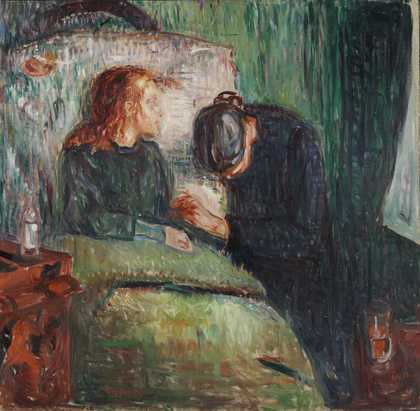‘One of the greatest artist biopics ever made.’ Jonty Claypole, Frieze
Edvard Munch draws on Peter Watkins’s unique approach to docudrama, using a cast of mostly amateur actors to render an experimental portrait of Munch’s life and the events, emotions and powerful work that defined it. Watkins conveys a strong sense of Munch’s subjective vision through careful study of his unpublished diaries and journals, reconstructing Munch’s creative process as well as his fears, inhibitions and yearning.
Edvard Much is the most personal film I have ever made. Its genesis lies in a visit to the Edvard Munch Museum in Oslo, in 1968, during the time of a screening of several of my films by the Oslo University. I was awestruck by the strength of Munch’s canvases, especially those depicting the sad life of his family, and was very moved by the artist’s directness - with the people in his canvases looking straight at us. I also felt a personal affinity with his linking of past and present, e.g., in the large painting showing the anguish of his family as his sister Sophie is dying: the artist and his brothers and sisters are depicted as adults -as they were in the 1890s when he painted this scene - even though the event had taken place ca. 20 years earlier. On another occasion, I was also very moved by Munch’s masterpiece ‘Death of a Child’, hanging in the National Gallery in Oslo; in this painting the artist is broken, and has, in an almost desperate frenzy, blurred the form of his earlier depiction of Sophie’s death. This painting, in its time, was attacked as being ‘incomplete’ - a charge which branded certain of his other works as well.’
Peter Watkins
Edvard Munch was awarded the BAFTA TV Award as Best Foreign Programme in 1977.

